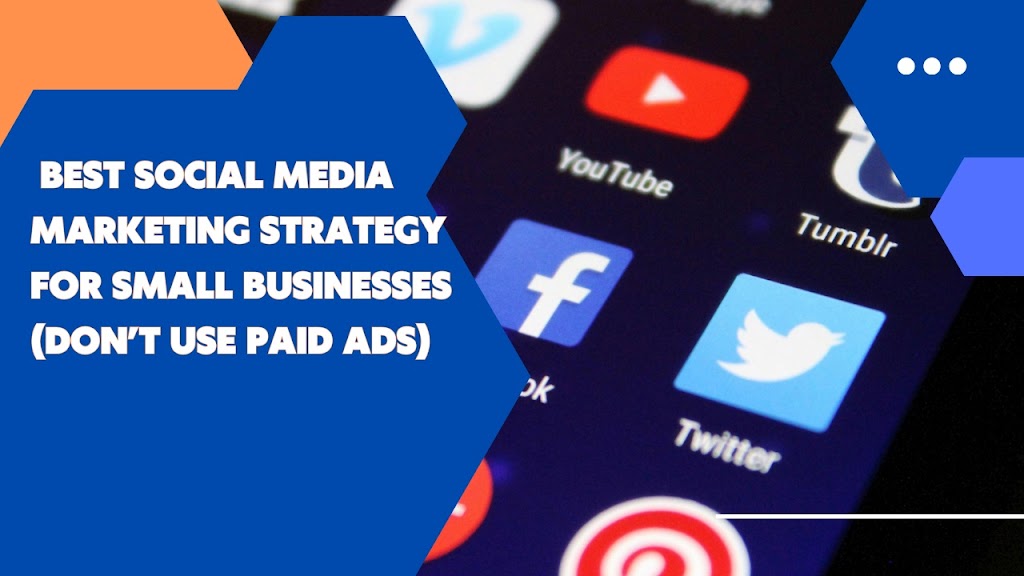If you’ve once launched a product or offered services as a startup, you truly know the importance of promoting your new business to reach your target customers.
Even though, having a strong social media presence can make a significant difference and provide a cost-effective way for small businesses to reach their target audience.
However, traditional or digital marketing can be quite expensive, often requiring budgets that can be challenging for small businesses to manage.
I remember when I wanted to start an online shop, I was thinking about how I could possibly market the business because of the high cost of marketing.
I pondered, “Why not simply sell my product on major e-commerce platforms like Amazon and Etsy?”
But on second thought, I said let me try some of these organic strategies that I have seen work for many startups.
Guess what, it wasn’t easy but on the long run it worked and I felt I should share these strategies with you.
So, in this blog post, we will look at some of the best social media marketing strategies for small businesses that doesn’t rely on paid ads.
So, what is Social Media marketing?
Social media marketing is the process of connecting with your audience on social media platforms to build your brand, increase sales, and drive website traffic.
It is an invaluable resource for small businesses, providing an affordable way to grow organically and reach more customers without spending a lot of money on paid ads.
The Difference Between Organic Reach and Paid Ads
Paid advertisements can be expensive, especially for startups with limited resources, but they can also be very effective.
However, focusing on organic reach, which involves creating high-quality content that engages your audience, can be more sustainable and cost-effective in the long run.
Social Media Marketing Strategy for Small Businesses
Although there are many social media marketing strategies that small businesses can use, the following are some of the most effective ones:
1. Create a Strong Social Media Strategy
Setting specific, attainable goals is the first step in developing a solid social media strategy.
Before anything else, you should decide what you want to achieve with your social media presence.
Is it increasing brand awareness, driving traffic to your website, or generating leads?
By establishing these goals, you may focus and maximize the effectiveness of your efforts by customizing your approach to achieve these particular aims.
2. Create and Curate Your Content
A successful social media strategy must include both content creation and curation. To attract and keep your audience’s interest, you must provide information that is both highly engaging and informative.
It is very important to strike the correct balance between carefully selected content from reliable sources and original content. By
presenting your content in a variety of ways, you can keep your audience’s interest.
3. Community Development and Engagement
Another key component of a successful social media presence is community development and engagement.
It’s important to actively interact with your audience by answering messages and comments right away. Encourage conversation by asking questions and getting feedback from your audience.
This fosters a feeling of community and demonstrates your appreciation for their perspectives.
Building a community around your brand will promote customer loyalty, which will increase sales and improve the perception of your company.
4. Be Consistent and Frequent
It takes consistency to maintain an engaging social media presence. Regular posting will help you keep your audience interested and feeling connected to your business.
The ideal frequency of posting may vary depending on the platform you are using and your intended audience. It is important to find a balance between being visible to your audience and not keep them in suspense.
5. Analyze and Adjust Your Strategy
Optimizing your efforts and getting better results requires analyzing and adjusting your social media strategy. Track important metrics like engagement, reach, and conversions with analytics tools.
You may learn a lot about what is and is not working by keeping a close eye on these measures. Make informed decisions using this information,
then modify your plan of action accordingly.
For instance, if you see that a certain type of content is engaging your audience, you may want to create more of it. If you find that a particular platform does not produce the results you’re hoping for, you may also want to consider shifting your resources to more successful channels.
Finally, you can stay competitive and improve your performance over time by regularly reviewing and adjusting your strategy in light of available analytics.
5. Build Relationships with your Customers
Social media offers businesses a unique platform for customer contact, allowing them to establish personal ties with their clients.
By using social media platforms, you can proactively interact with your clients, respond to their questions and concerns right away, and provide outstanding customer service. This straightforward and
engaging strategy builds loyalty and trust among your customers in addition to stronger relationships.
Conclusion
Implementing a strong social media marketing strategy can help small businesses grow t audience, increase brand awareness, and drive sales. By focusing on organic reach and engaging with your audience, you can create a successful social media presence without relying on paid ads.
FAQs
Can I use social media marketing for my small business if I have a limited budget?
Absolutely! Social media marketing can be very effective for small businesses with limited budgets, especially if you focus on organic reach and engagement.
How often should I post on social media?
The frequency of your posts will depend on your audience and the platform you’re using. Experiment with different posting schedules to see what works best for you.
How can I measure the success of my social media marketing efforts?
Use analytics tools provided by social media platforms to track metrics like engagement, reach, and conversions. These insights will help you measure the success of your strategy.
Should I focus on a single social media platform or multiple platforms?
It’s generally a good idea to start with one or two platforms and focus on building a strong presence there. Once you’ve established a presence, you can consider expanding to other platforms.
How can I build a sense of community around my brand on social media?
Engage with your audience regularly by responding to comments and messages, asking questions, and soliciting feedback. Hosting contests and giveaways can also help foster a sense of community.



